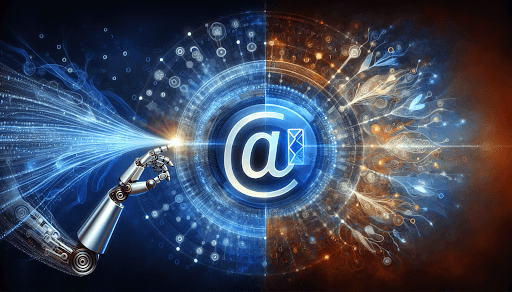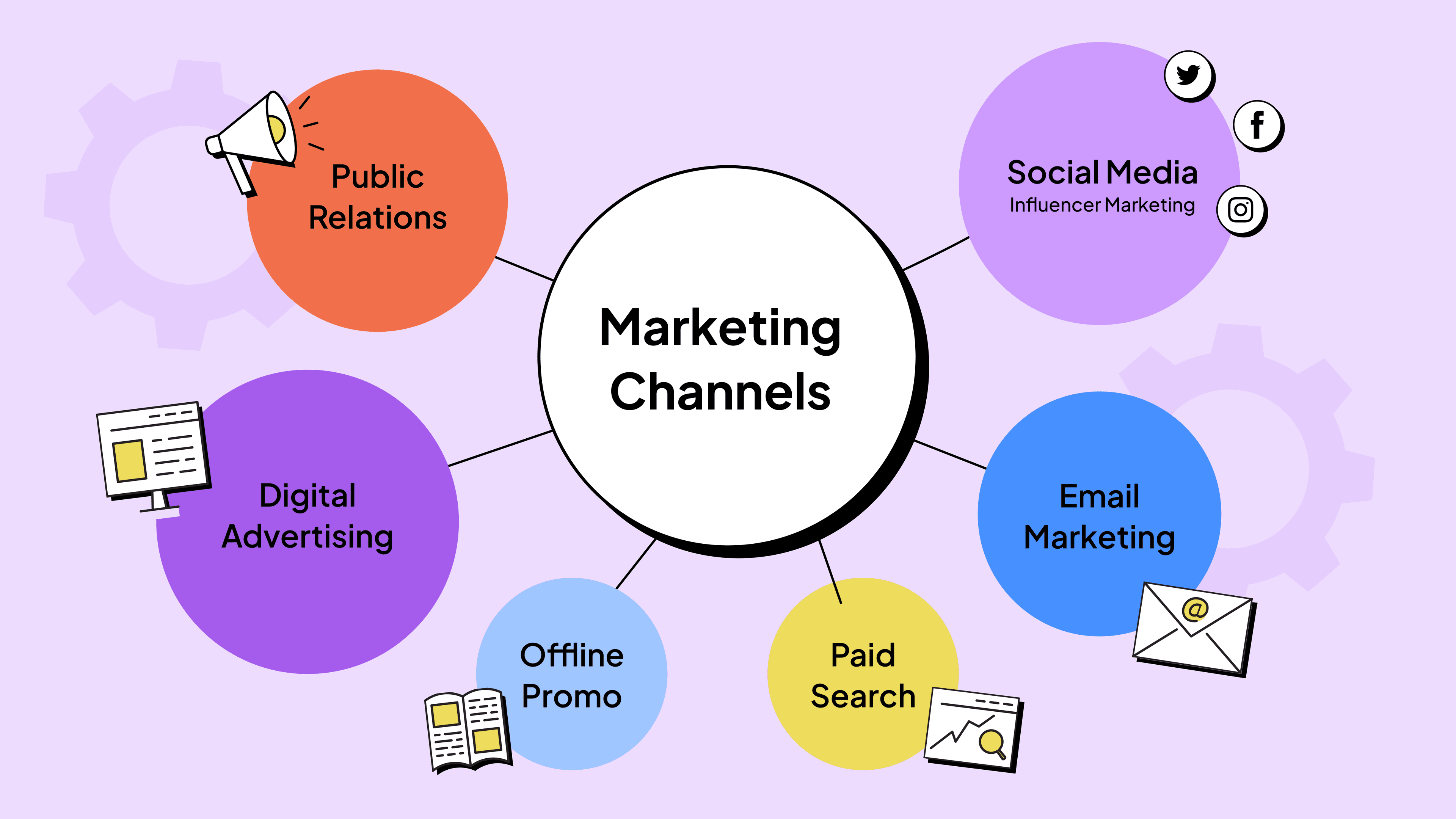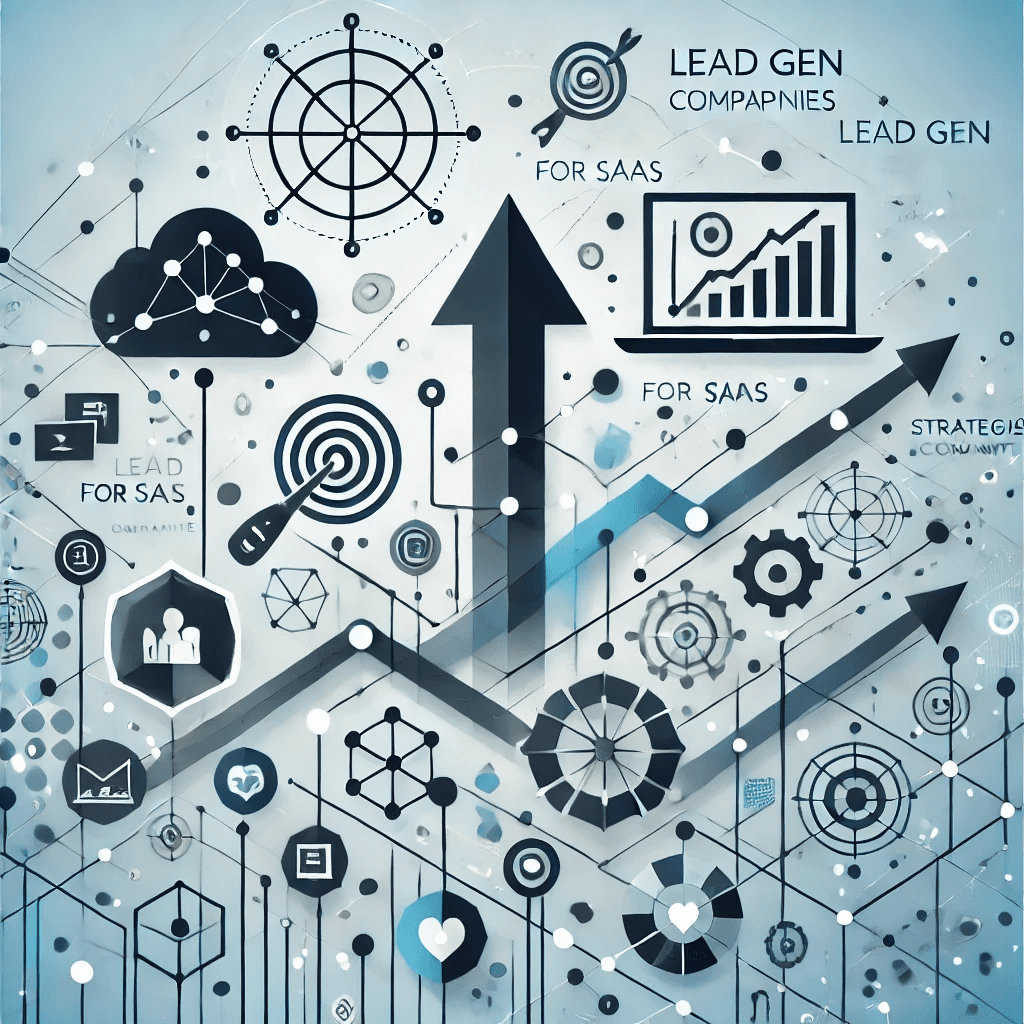The Impact of AI Cold Email Writing on Modern Marketing

We're living in an exciting time where AI is shaking things up in many areas, and marketing is no exception. AI cold email writing has an impact on how we reach out to potential customers, making our messages more personal and effective. It's fascinating to see how machine learning and natural language processing are transforming the way we connect with leads, helping us create emails that really resonate.
In this article, we'll explore the rise of AI in cold email marketing and how it's changing the game for personalization at scale. We'll also dive into the tricky balance between automation and authenticity, which is crucial to get right. By the end, you'll have a good grasp of how AI is revolutionizing modern marketing and what it means for lead generation. So, let's jump in and see what this exciting technology has to offer!
The Rise of AI in Cold Email Marketing
We're witnessing a revolution in the world of cold email marketing, and AI is at the forefront of this exciting change. As someone who's been in the marketing game for a while, I've seen firsthand how AI is transforming the way we reach out to potential customers. Let's dive into what AI cold email writing is all about, its benefits, and some popular tools that are making waves in the industry.
What is AI cold email writing?
AI cold email writing uses computer systems to perform tasks that typically require human intelligence . It's not just about automating the process; it's about leveraging machine learning and natural language processing to create emails that truly resonate with recipients.
When we talk about cold emails, we're referring to messages sent to potential buyers, colleagues, or partners without prior contact . The goal is to build new relationships for business opportunities, sales, partnerships, or job inquiries by providing value or addressing the recipients' needs and interests.
AI takes this concept to the next level by analyzing data and personalizing each email based on factors like demographics, behavior, and past interactions . This level of personalization goes beyond simply inserting a name; it's about crafting messages that feel tailored to each individual recipient.
Benefits of AI-powered cold emails
The advantages of using AI in cold email marketing are numerous, and I've seen some impressive results. Here are some key benefits:
- Increased efficiency: AI automation allows us to send many personalized emails simultaneously, saving time and effort . This means we can focus on other important tasks like lead generation and follow-ups.
- Higher response rates: By analyzing and optimizing the best timing, subject lines, and content for each prospect, AI can significantly increase our chances of getting a response .
- Improved personalization: AI's ability to analyze large amounts of data helps us create more relevant and engaging emails for each prospect, potentially leading to higher conversion rates .
- Better segmentation: We can now segment our email lists based on various factors, allowing for more targeted and effective cold outreach .
- Continuous learning: AI algorithms keep learning and improving based on the data collected from our campaigns, which means our results get better over time .
Popular AI cold email tools
There's a growing number of AI-powered tools designed to enhance our cold email strategies. Here are some that have caught my attention:
- Smartlead.ai: This modern cold email software uses AI to optimize email deliverability and help warm up email accounts, improving sender reputation and email engagement .
- Reply.io: An AI-first sales engagement platform that helps SDR teams find new prospects, engage them through multiple channels, and create new opportunities at scale while keeping every touchpoint personal .
- Instantly: This platform helps businesses send personalized and automated cold emails to prospects and leads. It offers features like finding the best leads, creating campaigns, and automating workflows using AI [7, 8].
- Lemlist: An advanced AI-powered sales engagement platform that offers prospect lists with details, discovers valid emails, and organizes personalized multichannel campaigns .
- Seamless: This AI-powered prospecting tool can improve your cold email strategy by identifying and prioritizing the most promising leads through data analysis .
- Copy.ai: An AI-powered writing tool that uses machine learning to produce diverse content types, including email copy. It can help grab the attention of prospects and increase open rates .
- Clay: This platform helps personalize cold emails by analyzing recipient data and creating custom messages for each prospect .
While these tools offer impressive capabilities, it's important to remember that the goal is to make our emails feel more human, not less. As we embrace AI in our cold email strategies, we need to strike a balance between automation and authenticity. After all, the most effective cold emails are those that genuinely connect with the recipient on a personal level.
Transforming Personalization at Scale
AI is revolutionizing how we approach personalization in email marketing. We're no longer limited to basic segmentation or simple name insertions. Instead, we're entering an era of hyper-personalization that's transforming how we connect with our audience.
AI-driven data analysis
The power of AI lies in its ability to analyze vast amounts of data quickly and accurately. We're now able to process and learn from various data points, including past interactions, purchase history, browsing behavior, and even social media activity. This comprehensive analysis allows us to understand our customers on a deeper level than ever before.
By leveraging AI, we can identify patterns and trends that might be invisible to the human eye. For example, we can now predict future customer behaviors and preferences with remarkable accuracy. This foresight enables us to create more intuitive and efficient email marketing campaigns that anticipate our subscribers' needs.
Hyper-personalized content creation
With AI's advanced data analysis capabilities, we're able to move beyond basic personalization to create truly tailored content for each recipient. This level of customization makes every email feel like a one-on-one conversation with our brand.
AI-powered algorithms can automatically generate product recommendations, exclusive offers, and even subject lines that resonate with individual subscribers. For instance, we can now craft personalized introductions and include relevant news, data, and insights that speak directly to each recipient's interests and needs.
The impact of this hyper-personalization is significant. Studies show that personalized emails have a 29% higher unique open rate and 41% higher unique click rates compared to non-personalized emails . This increased engagement not only makes our customers feel valued but also directly impacts our bottom line through higher conversion rates.
Optimizing send times
One of the most impressive applications of AI in email marketing is its ability to determine the optimal send time for each individual subscriber. By analyzing factors such as historical engagement data, time zone differences, and individual user behavior patterns, AI can predict when each recipient is most likely to open and engage with our emails.
This level of optimization goes far beyond traditional A/B testing. Instead of comparing two variants shown to random segments, AI uses machine learning to analyze user data and predict engagement on an individual level. This means we can send emails at the perfect moment for each subscriber, maximizing our chances of engagement.
For example, a global brand can use AI to send emails at the best times for different time zones, ensuring maximum engagement across their entire audience . This level of precision was simply not possible before the advent of AI in email marketing.
By implementing AI-driven send time optimization, we've seen significant improvements in our email performance metrics. Our open rates have increased, our sender score has improved, and we're getting more results from our email campaigns overall.
In conclusion, AI is transforming personalization at scale in email marketing. From deep data analysis to hyper-personalized content creation and optimized send times, we're now able to create email experiences that feel truly tailored to each individual recipient. As we continue to harness the power of AI, we're not just improving our email metrics – we're building stronger, more meaningful relationships with our customers.
Balancing Automation and Authenticity
As we dive deeper into the world of AI-powered cold email marketing, we're faced with an exciting yet challenging task: finding the sweet spot between automation and authenticity. It's a delicate balance that requires careful consideration and strategic implementation.
Risks of over-automation
While AI offers incredible benefits, we need to be aware of the potential pitfalls of over-relying on automation. One of the primary risks is overwhelming our recipients with too many automated emails. This can happen unintentionally, but the effects can be detrimental. Our subscribers might become irritated with the increased frequency, even if the content is more targeted, leading to unsubscribes or spam reports .
Another risk is the potential loss of personality in our email content. As we streamline and automate our campaigns, we run the risk of sounding like robots to our audience. This is the last thing we want, especially when we're trying to stand out in crowded inboxes .
It's also worth noting that automated replies, particularly those with basic automation, can be transparent and fail to address the nuances in a user's query. This can damage our brand and make users feel undervalued .
Maintaining a human touch
To avoid these pitfalls, we need to focus on maintaining authenticity in our AI-powered marketing efforts. For B2B brands like ours, authenticity is crucial for building trust and forging genuine connections. In fact, 75% of B2B buyers research solutions on social media, making it essential that we present an authentic brand image across all channels .
Here are some strategies we can use to maintain a human touch:
- Personalization: Use AI to gather data, but apply our human creativity to tailor the content to our specific audience.
- Tone and voice: Ensure our AI-generated content reflects our unique brand identity and company tone.
- Quality over quantity: Remember, while AI can churn out content quickly, our secret weapon is quality. Let's focus on creating valuable, relatable content that resonates with our audience .
Best practices for AI-human collaboration
To make the most of AI while maintaining authenticity, we need to establish best practices for collaboration between humans and machines. Here are some key strategies:
- Use AI for heavy lifting: Let AI handle information gathering and initial data analysis, while we focus on selecting and refining what's truly valuable .
- Apply human expertise: Use our judgment to interpret AI-generated results and create actionable strategies .
- Guide AI learning: Actively steer AI's learning process to align with our organization's values and objectives .
- Embrace AI as a tool: View AI as a powerful brainstorming tool and a springboard for our own creative thinking and innovation .
- Maintain oversight: While automating repetitive tasks with AI, let's ensure we maintain human oversight for quality control, goal alignment, and ethical considerations .
- Be transparent: We should be open about our use of AI. A survey by Dentsu found that over 70% of respondents want brands to disclose when they use AI across products, services, experiences, and content .
- Fact-check and refine: To ensure relevance and accuracy, we need to integrate fact-checking and quality control measures into our AI-powered content creation process .
By following these best practices, we can harness the power of AI to enhance our marketing efforts while maintaining the authenticity that our audience values. Remember, our creativity, empathy, and relatability are our greatest assets – ones that AI can't replicate. By combining these uniquely human qualities with AI's capabilities, we can create truly impactful marketing content at scale.
Conclusion
AI cold email writing is reshaping modern marketing in exciting ways. It's making our messages more personal and effective, helping us connect with leads on a deeper level. By using machine learning and natural language processing, we're able to create emails that really hit home with our audience, boosting engagement and conversion rates.
As we wrap up, it's clear that AI is a game-changer in cold email marketing. It's giving us the tools to personalize at scale, optimize send times, and create content that truly resonates. But remember, the key is to strike a balance between automation and authenticity. By keeping a human touch in our AI-powered efforts, we can build genuine connections and drive real results in our marketing campaigns.
FAQs
- How can AI be utilized in marketing?AI transforms marketing by automating essential tasks like analyzing data, segmenting customers, creating personalized content, and managing social media. This enables marketers to concentrate more on the strategic elements of their campaigns.
- What is the effectiveness of cold email marketing?Cold email marketing is highly effective, with 23% of sales professionals stating it as the best method to connect with prospects. Additionally, 21% of salespeople report that cold emails generate the most leads, making it a cost-effective strategy for lead generation.
- How can AI be implemented in email marketing?To enhance your email marketing efforts using AI, consider personalizing the content of your emails, optimizing the timing of your sends, refining your subject lines, automating segmentation, improving your calls to action (CTAs), streamlining A/B testing, and utilizing dynamic content.
- Why is personalization important in cold emails?Personalizing cold emails is vital as it helps build a rapport with the recipient, increases the likelihood of your email being opened and engaged with, and ultimately boosts the conversion rate.



